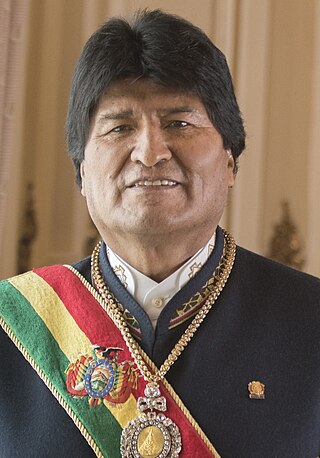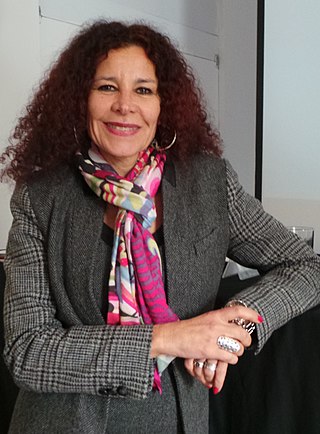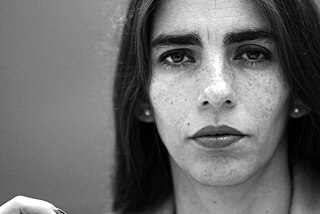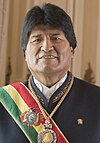
The politics of Bolivia takes place in a tree of a presidential representative democratic republic,whereby the president is head of state,head of government and head of a diverse multi-party system. Executive power is exercised by the government. Legislative power is vested in both the government and the two chambers of parliament. Both the Judiciary and the electoral branch are independent of the executive and the legislature. After the 2015 election,53.3% of the seats in national parliament were held by women,a higher proportion of women than that of the population.

Juan Evo Morales Ayma is a Bolivian politician,trade union organizer,and former cocalero activist who served as the 65th president of Bolivia from 2006 to 2019. Widely regarded as the country's first president to come from its indigenous population,his administration focused on the implementation of left-wing policies,improving the legal rights and socioeconomic conditions of Bolivia's previously-marginalized indigenous population and combating the political influence of the United States and resource-extracting multinational corporations. Ideologically a socialist,he has led the Movement for Socialism (MAS) party since 1998.
Abortion in Bolivia is illegal,except in the cases of rape,incest,or to protect the woman's health. This policy forms part of the Penal Code laid down in 1973,and has been in force since then. Due to the difficulty of receiving abortions—even if the abortion does fall under one of the exceptions to the law,judicial permission needs to be secured,which can take a very long time—many pregnant women end up having unsafe,clandestine abortions instead. According to the Bolivian Ministry of Health,almost all of the 67,000 abortions performed in Bolivia in 2011 were clandestine,with approximately half of the women who received them needing hospital care afterwards. This practice has been linked to the high maternal mortality rates in the country.

Elizabeth Cristina Salguero Carrillo is a Bolivian diplomat,journalist,politician,and women's rights activist who served as minister of cultures from 2011 to 2012. A member of the Movement for Socialism,she previously served as a party-list member of the Chamber of Deputies from La Paz from 2006 to 2009. In 2009,she was elected as a substitute party-list member of the Chamber of Deputies from La Paz but resigned before taking office in order to launch an ultimately unsuccessful La Paz mayoral campaign. From 2012 to 2015,she served as ambassador of Bolivia to Germany,and since then has worked as an international expert in strategic planning at UN Women.

Nila Heredia Miranda is a former medical school anatomy professor and administrator,former leftist militant,and Bolivia's Minister of Health and Sports,a position she has occupied twice.

Bolivia–Cuba relations refers to the diplomatic relations between Bolivia and Cuba. Both nations are members of the United Nations,but relations of Bolivia with Cuba,like those of most countries in the Western Hemisphere with the notable exceptions of Canada and Mexico,have waxed and waned over the decades depending on geopolitical and regional political circumstances. Relations were good under Evo Morales,who shared the position of his like-minded left-wing allies in Nicaragua and Venezuela that Fidel Castro was a humanist and beloved icon of resistance to US hegemony in the Americas.

Lilly Gabriela Montaño Viaña is a Bolivian physician,politician,and former senator. She was the elected President of the Plurinational Legislative Assembly,a position she accepted and would hold until 2020 while still the presidential representative of Santa Cruz de la Sierra for the Movement for Socialism (MAS) party. In 2012,Montaño was made the acting President of Bolivia for a short time. Montaño is a feminist and vocal defender of the rights of the LGBT community. She has been a regular guest and speaker at forums and conferences in different parts of the world. She married Argentine citizen Fabián Restivo,with whom she has had two daughters.

Adriana Salvatierra Arriaza is a Bolivian political scientist and politician who served as president of the Senate in 2019. A member of the Movement for Socialism,she served as senator for Santa Cruz from 2015 to 2020 and was a substitute senator for Santa Cruz under Carlos Romero in 2015. At age twenty-nine,Salvatierra was the youngest legislator and third woman to hold the presidency of the Senate and was the youngest individual to ever exert presidential authority,albeit briefly in an acting capacity.

Antonia Wilma Alanoca Mamani is a Bolivian journalist,politician,and television presenter who served as minister of cultures and tourism from 2017 to 2019. A member of the Movement for Socialism,she previously served an El Alto municipal councilor from 2015 to 2017,a position she returned to in 2021.

Ana Verónica Ramos Morales is a Bolivian economist,university professor,and former general manager of the Productive Development Bank (BDP). She was the Minister of Productive Development and Plural Economy of Bolivia from January 2015 to January 2017,during the third government of President Evo Morales.
Mariana Prado Noya is a Bolivian business administrator and politician. She served as the Minister of Development Planning from 2017 to 2019,during the third government of Evo Morales.

Andrónico Rodríguez Ledezma is a Bolivian cocalero activist,political scientist,politician,and trade unionist serving as president of the Senate since 2020. A member of the Movement for Socialism,he serves as senator for Cochabamba. Rodríguez's lengthy career in the cocalero union hierarchy saw him serve as general secretary of the 21 September Workers' Center from 2015 to 2016 and as executive of the MamoréBulo Bulo Federation from 2016 to 2018,in addition to a multitude of other minor positions. He has served as vice president of the Coordination Committee of the Six Federations of the Tropic of Cochabamba since 2018 and held office as president of the organization from 2019 to 2020 in the absence of the body's longtime leader,Evo Morales.

Sabina Orellana Cruz is a Bolivian unionist and politician of Quechua origin serving as Minister of Cultures,Decolonization and Depatriarchalization since 20 November 2020. She is a member of the Bartolina Sisa Confederation of indigenous women.

The Arce Cabinet constitutes the 222nd cabinet of the Plurinational State of Bolivia. It was formed on 9 November 2020,one day after Luis Arce was sworn in as the 67th president of Bolivia following the 2020 general election,succeeding the Áñez Cabinet. The cabinet is composed entirely of members of the ruling Movement for Socialism. Described as a "technocratic" cabinet,it has been noted for the low-profile and youth of some of its members as well as its political distance from former president Evo Morales.

Ana Teresa Morales Olivera is a Bolivian economist,professor,and politician. She was the Minister of Productive Development and Plural Economy of Bolivia from 23 January 2011,to 23 January 2015,during the second government of President Evo Morales Ayma.

Ariela María de los Milagros Luna Florez is a Peruvian physician and anthropologist. She was her country's Minister of Development and Social Inclusion (MIDIS) from 29 October 2019 to 15 July 2020,during the government of Martín Vizcarra.
Cielo Jazmín Veizaga Arteaga is a Bolivian footballer and politician serving as vice minister of sports since 2020. Veizaga's swift rise to fame,joining the country's U20 team at age fourteen and becoming the youngest member of President Luis Arce's administration at nineteen,has been met with acclaim despite accusations of inexperience in her State portfolio.

Rebeca Elvira Delgado Burgoa is a Bolivian academic,lawyer,magistrate,and politician who served as president of the Chamber of Deputies from 2012 to 2013. As a member of the Movement for Socialism,she served as a party-list member of the Chamber of Deputies from Cochabamba from 2010 to 2014. Prior to her election to the lower chamber,Delgado served as a party-list member of the Constituent Assembly from Cochabamba from 2006 to 2007 and was vice minister of government coordination from 2008 to 2009. Delgado's near-decade-long political and legislative tenure was preceded by a fifteen-year career as a public servant,during which time she worked as a public defender and examining magistrate,was a magistrate on the Departmental Electoral Court of Cochabamba,and served as the Ombudsman's Office's delegate for the fight against corruption in Cochabamba.

Romina Guadalupe Pérez Ramos is a Bolivian academic,diplomat,politician,and sociologist who served as ambassador of Bolivia to Iran from 2019 to 2020 and since 2021. A member of the Movement for Socialism,she previously served as a party-list member of the Chamber of Deputies from Cochabamba from 2015 to 2019. Pérez graduated as a sociologist from the Higher University of San Simón before completing postgraduate studies in the European Union. She comes from a generation of leftist academics who entered political activity as activists against the military dictatorships of the 1970s and 80s,as well as the neoliberal democratic governments that succeeded them. Her work in the field of women's and ethnic rights led her to join multiple NGOs,including the Center for Legal Studies and Social Research,through which many academics and intellectuals became politically linked with the Movement for Socialism. In 2014,she won a seat in the Chamber of Deputies on the party's electoral list but did not complete her term,being appointed ambassador to Iran in mid-2019.
María Magdalena Cajías de la Vega is a Bolivian academic,historian,and politician who served as minister of education from 2007 to 2008. Cajías spent most of her professional career teaching history at the Higher University of San Andrés,in addition to holding a number of consultancy posts for intergovernmental organizations and government bodies. She authored multiple published historical titles,focusing on the fields of women's and labor history. In 2006,Cajías was brought on as a consultant for the Ministry of the Presidency before being appointed to head the Ministry of Education the following year. After a brief return to academia following the conclusion of her ministerial term,Cajías returned to public administration as consul general in Santiago,where she served from 2014 to 2019. In 2021,she was named as a member of the editorial board of the Bolivian Bicentennial Library.

















